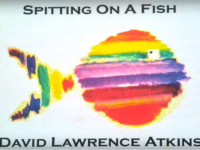As the world is gearing up for the annual shopping and eating spree that we call Christmas, a remarkable album is set to be reissued: the moody debut of David Ackles, first issued by Elektra Records in 1968.
If Christmastime is a celebration of home and family, David Ackles turns its gaze to the darkness outside, where those unable to come back home are doomed to wander the cold world. “Road to Cairo” sets the tone with a few bars of minor chords and the singer’s distinctive baritone. It’s the story of a hard-hitting rambler on his way home to his destitute wife and children in Cairo, Illinois. Ridden with guilt and shame over his life’s mistakes, he’s finally left stranded on a side-road while a frantic guitar unleashes the bottled despair in Ackles’s singing.
If the late Ackles (1937-1999) ever came close to a hit, it was with “Road to Cairo,” as covered by Julie Driscoll, Brian Auger and the Trinity. Yet his own recording remains the definitive version. Here and throughout this first album, his piano and voice are accompanied by the excellent musicians of Elektra’s Rhinoceros formation. They are not afraid to explore the diverse musical landscape of Ackles’ compositions, whose shifting, highly original harmonies and textures are far removed from standard 60s folk-rock.
In addition to the ten original songs — which include the harrowing “Down River” and “His Name is Andrew” — this new reissue also comes with five bonus tracks: two previously unreleased outtakes and three alternate versions. The ominously titled “The Grave of God,” in particular, is an important addition to the relatively small Ackles catalog, as is the violin-infused single version of “Be My Friend.” For after this promising debut, Ackles recorded only three more albums before disappointing sales cut short his career.
In a fairer world, those four albums would place Ackles high among gifted contemporaries such as Randy Newman, Leonard Cohen and Tom Waits. As it is, his name is known only to a few aficionados and fellow musicians, including long-time admirers Elvis Costello and Elton John. But perhaps, with this expanded look back at David Ackles, he will slowly but steadily begin receiving the posthumous appreciation he deserves. Like the best of wines, these songs have not worn out over the years. Instead, they have matured into an ever richer musical, emotional, and spiritual experience.
Ackles is a fitting Christmas gift for anyone interested in intelligent, moving and sophisticated songwriting with an unsettling undercurrent — the perfect antidote to the season’s musical inanities.
- Why Warren Zevon Shouldn’t Only Be Remembered For a Novelty Single - September 7, 2023
- Thanksgiving Songs From Bob Dylan, Joan Baez + Others: Gimme Five - November 25, 2021
- Dory Previn, “The Lady With the Braid” (1971): One Track Mind - November 27, 2019




